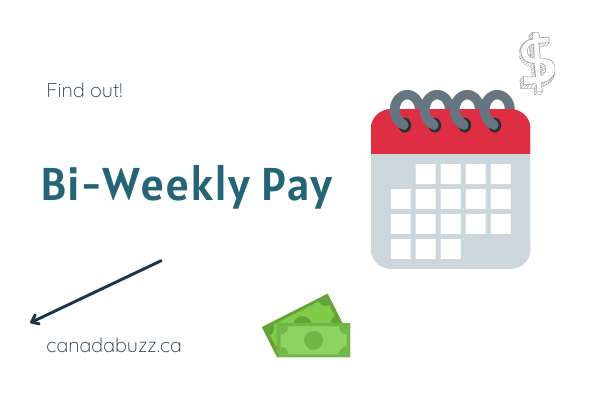Once you have employees in your organization, you will be required to prepare a payroll that’ll enable you to pay their wages. This payroll depends on the agreement between the employer and the employee. Sometimes, it also depends on the rules governing wages in the organization.
Choosing a payment schedule can be a hassle for most employers as they’ll want to ensure every employee gets paid when due. However, all organizations are required by Canada’s provincial laws to pay wages at prescribed periods.
These pay patterns can vary depending on the terms and conditions governing an employee’s employment. One of the most prominent pay patterns is Bi-weekly pay.
What is Bi-Weekly Pay? – Job
Bi-Weekly pay is when businesses/organizations pay their employees every other week on a particular day of the week. This implies that employees on this payment schedule will be paid 26 times a year, on average, twice a month.
You may be paid three times every month, depending on your pay schedule. As an employer, you can choose any day of the week to pay your staff.
Bi-weekly Payment – Mortgage
Bi-weekly payments apply to several other areas including Mortgage. Bi-weekly helps you pay off your mortgage faster by paying half of your monthly payment every two weeks.
You’ll pay the equivalent of 13 monthly instalments instead of 12 by the end of each year.
How many bi-weekly payments in a year?
You’ll have paid the equivalent of one extra monthly payment by the end of the year if you pay 26 biweekly payments. This extra money helps you pay off your loan faster by going straight to the principal. It can save you money on interest and years off your mortgage.
How Bi-Weekly Pay Works in Canada
With Bi-weekly payment, the company determines the day every employee will be paid. Some firms, for instance, might prefer to pay on Monday. That is, they will pay wages every other Monday in a month. Employees who are placed on a salary receive the same amount of income each pay period.
Employers typically issue paychecks five days after completing a pay period to allow for the processing of all worked hours and the deduction of taxes. Thus, it can take up to three weeks to get paid, even if you’re paid biweekly. That is if it is your first payment after starting a new job.
Calculating Bi-Weekly Pay
Calculating Bi-Weekly Payment is relatively easy. To get the correct amount you’ll receive, you’ll first: evaluate your gross annual salary, then divide the figure by 26. The result you get is the amount you will receive bi-weekly.
While calculating your bi-weekly pay, you might want to factor in payroll deductions into your bi-weekly payment. This is applicable if you are on an automatic deduction for benefits.
Employees on hourly pay can calculate their income by dividing the number of hours worked every two weeks by their bi-weekly paycheck. That is, if Mr. Johnson earns CA$60,000 gross annual salary, his bi-weekly pay will be CA$2,307.69, while his hourly pay will be CA$28.84 for a 40-hour workweek.
Pros of Bi-Weekly Pay
Some of the advantages of bi-weekly pay include:
- More paychecks
A biweekly salary provides you two more paychecks per year than a semi-monthly payment. Receiving three checks in a month is a pleasant perk, especially if you’re an hourly worker.
- Consistency
Every other week, paydays fall on the same day, resulting in a pretty predictable pay cycle. Rather than being paid on multiple days of the week, you know when you’ll get paid.
- Better budgeting
You can expect a consistent paycheck every other week, thereby making it easy to plan your expenses.
- Error-free and time-efficient
A bi-weekly paycheck eliminates the possibility of payroll errors. Also, the time spent on payroll processing is lesser compared to the weekly pay pattern.
Cons of Bi-Weekly Pay
- Financial instability
The cons are more on the business side. A business must be financially prepared for the months with three paychecks and plan accordingly to ensure the payroll account has enough money to cater for extra expenses.
- Service charge
There is a service charge for every payroll run. This means a bi-weekly paycheck generates higher annual fees.
Conclusion
Before you start working in an organization, it is essential to consider the pay cycle and its impact on your budget. Ensure to prepare a reasonable budget that works around your pay cycle so you can continue to support your lifestyle.












